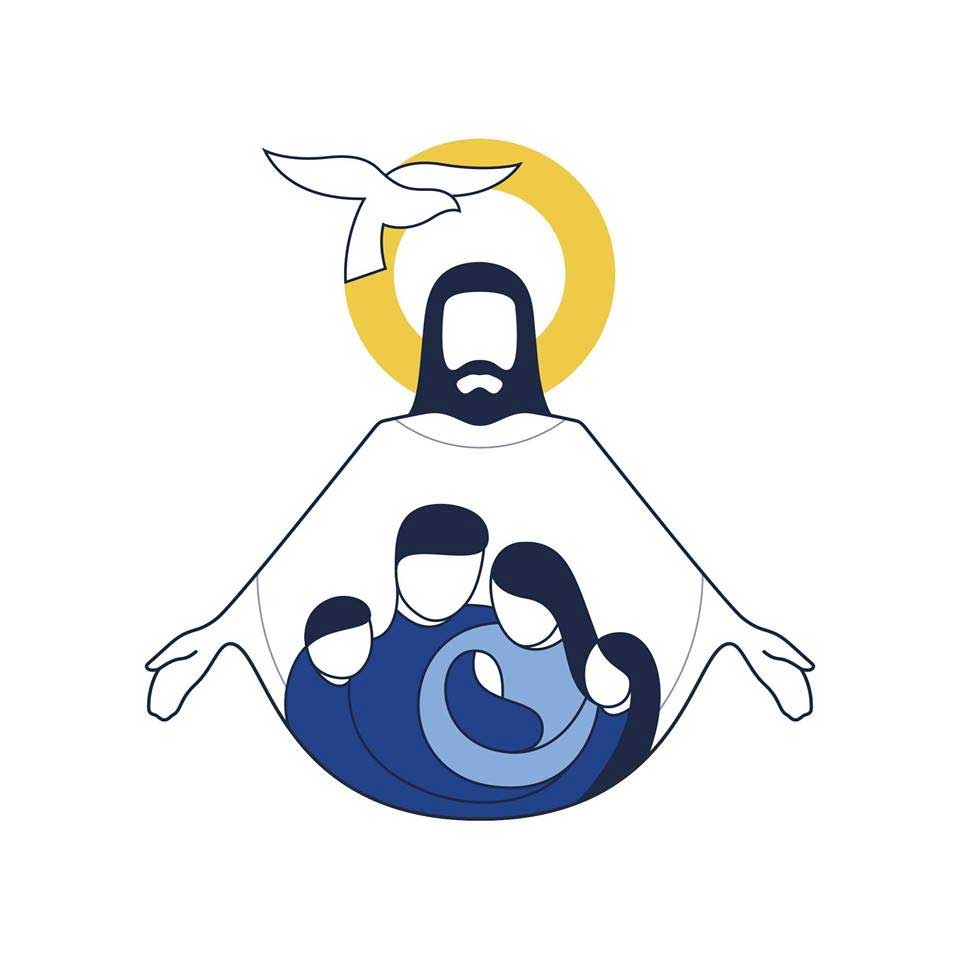FROM THE SERVANT GENERAL
OUR THEME FOR 2020
(Part 54)
CALLED TO HOLINESS
June 15, 2020
Today’s gospel: Matthew 5:38-42
We are built on the Rock that is Christ. This happens when we listen to Jesus’ words and act on them. Today we are greatly challenged by Jesus’ words. Jesus tells us to offer no resistance to one who is evil, to turn the other cheek when struck on one cheek, to give our cloak as well to one taking our tunic, to go double the distance when pressed into service, to give to whoever asks, and to lend to one who borrows. These seem like formulae for being taken advantage of and being deprived of what is ours—justice, dignity, possessions, time, money. How are we to understand these instructions?
To be built on the Rock that is Christ is to be holy as God is holy. To be holy is to be set apart. It is to be different from others in a fallen world. It is to think and act and love as Jesus does. Let us then try to understand what Jesus means in these verses.
“But I say to you, offer no resistance to the one who is evil.” (v.39a)
This is in the context of the previous verse. “You have heard that it was said, ‘An eye for an eye and a tooth for a tooth.’” (v.38).1 Thus we are not to retaliate against those who do us wrong. We are not to pay back evil for evil. But there are a number of considerations.
First, this does not preclude self-defense. Self-defense is not retaliation, but trying to prevent someone from doing us harm. But as we defend ourselves, we are not to go beyond reasonable force in protecting ourselves. We are not to inflict greater harm on the aggressor that is necessary to prevent harm to ourselves.
Consider if bad people broke into our home and started abusing our loved ones, including our young children. While we can take a posture of accepting harm upon ourselves personally, we should not allow the harming of others entrusted in our care.
Second, this does not mean not seeking justice for unjust harm done to us. We can and in fact in most cases should report the matter to the authorities. Then we leave justice up to them. This is also in consideration of others that might also be harmed by such an aggressor. One who is evil should indeed be restrained by authorities.
Third, remember that James tells us to “resist the devil.”2 One who is evil is one who is of the devil, and he is about doing evil in the world. We must in fact do what we can to resist such evil and such evil persons. But we must never use evil means.
“When someone strikes you on your right cheek, turn the other one to him as well.” (v.39b)
Since most people are right-handed, one facing you who strikes you would hit you on the left cheek. If he strikes you on your right cheek, then he used the back of his right hand to strike. This is not so much a physical assault but an insult or challenge. In olden times, people would take off their right glove and use it to strike a person with a swing of the right hand on the other’s right cheek. This was often a challenge to a duel. So how should we react to such an action?
First, again we do not retaliate. We do not return an insult for an insult. We do not get into a shouting match. We do not try to outdo the other person in verbal assault. As a Christian, our posture is not to escalate the situation but to hopefully dampen it. We are even willing to take more verbal abuse, as we turn the other cheek.
This was the posture of Jesus. Members of the Sanhedrin spat in his face, struck him and slapped him, but he remained silent and composed.3 The Roman soldiers mocked him, struck him, spat on him and ridiculed him, but again he remained silent.4
Second, if we are insulted or oppressed due to our stand for Jesus, then that is to be expected and even to be rejoiced in. Jesus had just taught about the Beatitudes, where he pronounced as blessed those insulted and persecuted because of him, as had happened to the prophets. We accept being struck on our right cheek as affirmation of our being founded on Rock.
“If anyone want to go to law with you over your tunic, hand him your cloak as well.” (v.40)
Notice that the other person is not forcibly taking the tunic, but possibly, in a dispute of ownership, has gone to court. So here is an instance of expressing magnanimity. It is being generous or forgiving, especially to a rival. It is saying, if you want it that much, then here it is.
But it goes beyond just giving the tunic, but offering the cloak as well. It is considering why the other person is going to court over the tunic. Is it a case of great need? So offering the cloak as well is manifesting care and concern for the need of the other, and looking to how that need can more effectively be met.
This does not preclude contesting an infringement on our own rights, if such is the case. But it does say that we do not necessarily have to stand on rights or even justice, if our action is helpful to the other, including mending our own personal relationship.
“Should anyone press you into service for one mile,6 go with him for two miles.” (v.41)
This is what has given rise to the expression “going the extra mile.” The Christian is one who gives more than what is expected of him. We serve not just to fulfill an obligation, but to please our Master. If we love, there should be no limits.
As Christians, we are to know, love and serve God. There are many commands of God for us to serve, including the marching orders to proclaim the gospel to the world. Paul says that the commandments of God are fulfilled in loving your neighbor as yourself.7 Thus it is not so much strict technical compliance with the law, but rather manifesting the love of God in every situation. Obeying God is manifested in love of neighbor, expressed in going the extra mile. It is giving beyond what is required.
“Give to the one who asks of you” (v.42a)
This is basically about being generous to those in need. There are a number of considerations.
First, we are stewards of what we possess, and everything belongs to God. We are to use “our” possessions to help build the Kingdom of God in our midst. That includes looking to the needs of others, especially the poor. For the poor, manna does not just fall from heaven, but is sent by God through human instruments, such as us.
Second, being stewards, we must also be discerning as to how we give to those who ask. Let me give an example. If someone came to your door and asked for money and you gave, that news would quickly go around, and many more would come to your door to ask. If you gave them all, and ended up with no more, would that have been the proper use of God’s money? Consider especially if among those who asked were those who spent the money on drugs or alcohol or gambling.
Let me give another situation that is more familiar to us. These are beggars on street corners. Do we give when asked? There are two positions. One is that behind these beggars are syndicates, and giving actually helps not the poor but the syndicates, and even contribute to exploitation of the poor. This is a reality. On the other hand, there are also legitimate beggars, and who knows, you might even end up giving to Jesus in disguise.8 What is the solution? Some parishes try to gather the poor off the streets and help them. On a personal basis, one practical way that I did before was to have crackers in the car, which I gave rather than money to the beggars who asked for alms. This way the need for food was addressed, albeit in a very small way, and the machinations of syndicates were not supported.
“do not turn your back on one who wants to borrow.” (v.42b)
Once again the operative principle here is stewardship. We must not turn our back to one who is in need, but we do not necessarily just give what one is asking for. Being proper stewards, it is right for us to see if the borrowing is justified. What if one wants to borrow simply to indulge a vice? What if one wants to borrow for a legitimate need but has not really exhausted the alternatives, such as free medical services from government or charitable institutions? What if one wants to borrow to pay off a debt or assist in one’s business but has not done sufficient work on how to prevent the same challenges occurring? It might happen that we are helping out in the short term but not really helping the person make needed fundamental changes in his life.
When we do not turn our backs, we can help not necessarily with money but with inputs on how to address the problem. In fact, the easiest way might be to just lend the money. But that is not necessarily the best way. We can help look onto the problem, and help come out with solutions.
So, built on the Rock that is Christ, we are called to be holy. It is to be set apart. It is to be different from the world. Even when we consider seemingly right things or values in the world, we are still to be different.
- The world looks to equality in dealings. Rightly so. But as Christians, we can be willing to take the short end of the deal, if doing so can help preserve or enhance relationships.
- The world looks to justice and proportional legitimate responses to wrongs done. But as Christians, we can be willing to suffer injustices, for the sake of a higher righteousness.
- The world looks to personal possessions and to protections for what is legitimately ours. But as Christians, we can allow ourselves to be deprived, as we look to possessions as belonging to God, not to be clung to or fought over, but to be used to do good and to help others.
- People in the world often define themselves in relation to others and they act accordingly. But as Christians, we always act in relation to God. We have a larger perspective. We see beyond what is on the surface. The situation of others’ actions towards us is simply the trigger for acting in the righteousness of God. Even the wrong actions of others provide us the opportunity to act in righteousness and grow in holiness.
- People in the world allow others to dictate on then and determine their responses. In effect, they put themselves under the power of others. But as Christians, we belong only to God and bend only to His power over us. Thus when insulted, we are able to turn the other cheek, accepting and enduring even more insult. Thus when our tunic is being taken, we are able to offer our cloak as well. Abusive actions of others do not bring us down. We know who we are and whom we aim to please.
- The world looks to fairness and justice. These are good norms for the world. But as Christians, we can be treated unfairly and suffer injustice, and still not be led into counter actions that would not befit a true Christian. God is our standard, not the world.
1 See Leviticus 24:20. The Old Testament law was meant to moderate vengeance, that the punishment should not exceed the injury done. Jesus forbids even this proportionate retaliation.
2 See James 4:7b.
3 See Matthew 26:67.
4 See Mark 15:18-19.
5 See Matthew 5:11-12.
6 Roman garrisons in Palestine had the right to requisition the property and services of the native population.
7 See Romans 13:9.
8 Mother Teresa loved and cared for the poor, saying the poor were Jesus in the most distressing disguise.








